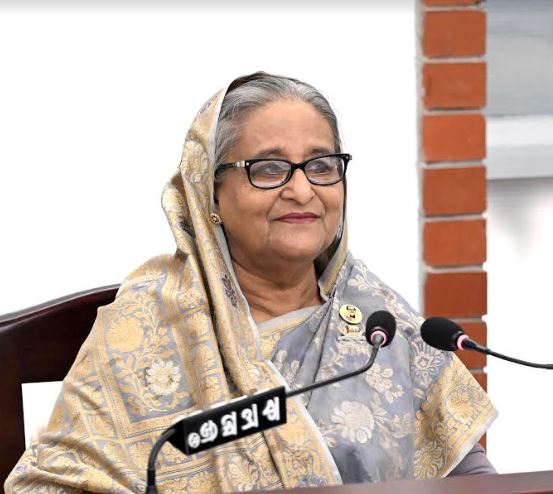In the intricate landscape of international relations, few alliances stand as shining examples of fruitful collaboration and mutual growth. The recent discourse by Indian External Affairs Minister S Jaishankar, emphasizing the bilateral relationship between India and Bangladesh as a “model relationship” within the Indian subcontinent, casts a spotlight on the evolving dynamics between the two nations.
The significance of this relationship echoes beyond diplomatic dialogues and resonates within the realms of shared prosperity, strategic connectivity, and historic reconciliations. Jaishankar’s articulation of this alliance as a pivotal cornerstone in India’s foreign policy underscores the depth of commitment towards fostering stability and progress in the region.
One pivotal achievement that resonates profoundly is the resolution of long-standing territorial disputes. The amicable settlement of the land boundary and maritime disputes between India and Bangladesh stands as a testament to diplomatic finesse and mutual respect, setting a commendable precedent for global counterparts.
Moreover, the collaborative efforts in infrastructural developments such as rail lines, power plants, and shared port utilization exemplify the tangible outcomes of this symbiotic relationship. These endeavors not only bolster regional connectivity but also underscore the mutual benefits derived from such collaborative ventures.
The acknowledgment of historical disruptions, particularly referencing the events of 1971, serves as a reflective milestone in understanding the transformative journey of the subcontinent. Jaishankar’s recognition of this historical juncture not only acknowledges the economic progress of Bangladesh since then but also underscores the resilience and growth of a nation that emerged from challenging circumstances.
Bangladesh’s economic trajectory, from being considered the less developed part of Pakistan to its current state of progress, stands as a testament to the nation’s resilience and determination. This acknowledgment rightfully shines a light on Bangladesh’s commendable economic strides and serves as an inspiration for emerging nations worldwide.
In essence, the India-Bangladesh relationship is not merely confined to geopolitical rhetoric; it is a living testament to the possibilities that unfold when nations foster mutual understanding, respect sovereignty, and work collaboratively for shared growth. This “model relationship” sets a blueprint for regional cooperation and underscores the potential for transformative change when nations forge partnerships based on shared goals and mutual respect.
As these nations continue to navigate the complexities of the modern world, the India-Bangladesh camaraderie stands tall as a beacon of hope, illustrating the immense potential that lies within collaborative endeavours and the collective pursuit of progress and prosperity.






